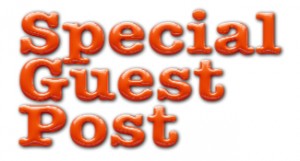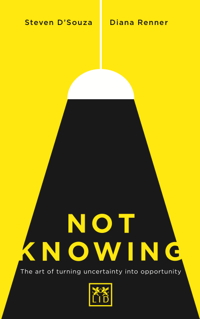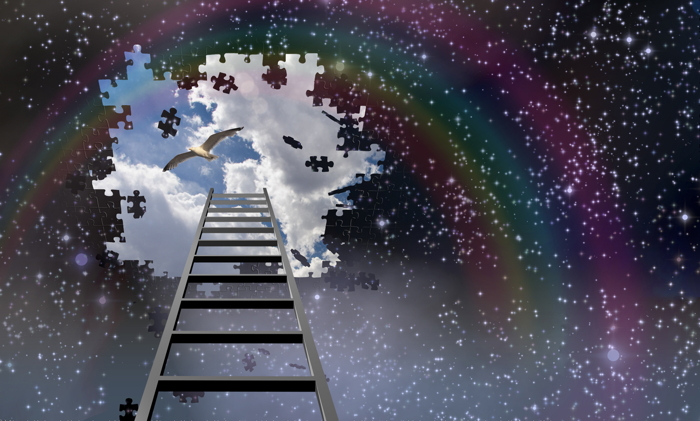 I had the pleasure of knowing Steven D’Souza long before the start of the Nextsensing Project. He has been a colleague and good friend for nearly a decade. In this post (based on his new book), I believe you will find Steven to be a thought leader who quickly demonstrates his ability to sense the salient issues of the day.
I had the pleasure of knowing Steven D’Souza long before the start of the Nextsensing Project. He has been a colleague and good friend for nearly a decade. In this post (based on his new book), I believe you will find Steven to be a thought leader who quickly demonstrates his ability to sense the salient issues of the day.
Steven’s new book is titled Not Knowing: The Art of Turning Uncertainty Into Opportunity [link], which he co-authored with Diana Renner. Steven has often enriched my own ability to think more clearly and constructively. This new book, however, is tantalising: I believe that most people have never considered the unknown as a possible asset. Instead, they operate only on what they believe they know; they see the unknown as something to be feared. Consider this post an appetiser for the main course, which is the book itself. To obtain it, simply jump to the website link I just provided. How can one succeed by not knowing? It’s an intriguing question, one that Steven begins to address here. Enjoy!
 Like many people, I have always been anxious about the future. If I’m not thinking about past events, my mind is like a fairground carousel of Cassandrean images of what may be, worrying about choices to be made and unforeseen consequences. We are afraid of the unknown and for good reason — in the past, what we did not know could literally kill us. For many of us, modern life is not so extreme; but neurologically we are still hardwired to know, and the fear of the unknown is a real threat.
Like many people, I have always been anxious about the future. If I’m not thinking about past events, my mind is like a fairground carousel of Cassandrean images of what may be, worrying about choices to be made and unforeseen consequences. We are afraid of the unknown and for good reason — in the past, what we did not know could literally kill us. For many of us, modern life is not so extreme; but neurologically we are still hardwired to know, and the fear of the unknown is a real threat.
I am not unlike an organisation. Isn’t the primary focus of much management the routinising of what has worked in the past to create efficiencies and reduced uncertainty by increasing predictability? Are not CEOs, management teams, and workers on the front line consumed with wanting to know what is to come for their company or for their individual teams and jobs? Fear of new competitors, volatility of markets, and continuous organisational restructures are business as usual.
 In this complex, connected and confusing world, especially in organisations, we frequently turn to our leaders and experts to help us sort the signal from the noise. We expect our leaders to provide certainty, protection, and direction. We pay consultants handsomely to reduce our uncertainty through analysis, PowerPoint slides, and the production of strategic plans.
In this complex, connected and confusing world, especially in organisations, we frequently turn to our leaders and experts to help us sort the signal from the noise. We expect our leaders to provide certainty, protection, and direction. We pay consultants handsomely to reduce our uncertainty through analysis, PowerPoint slides, and the production of strategic plans.
Unfortunately, our experts are mostly wrong in their predictions, our leaders do not have all the answers, and most of our change plans are never successfully implemented. Often our problems are not simply complicated but also complex. Their persistence is a clue that they don’t require only technical solutions but are adaptive challenges requiring changes in beliefs and behaviour.
At some point, leaders, teams, and even organisations find themselves at the edge of their expertise and knowledge. They are left feeling groundless. There are clear signs we can observe at this edge: we choose to “stick with what we know and avoid engaging in what we don’t understand”. Or we may see a rush to action — when we don’t know what to do but doing anything is better than staying with the current tension. There are yet other signs: endless meetings as a form of paralysis analysis, engaging in “catastrophic” thinking, and frequently a revert to command-and- control leadership are all typical attempts to reassert control over what seems chaotic and difficult.
In the new book I’ve written with my colleague, Diana Renner, we call these signs reactions at the edge — clues that we have reached the limits of our expertise and knowledge. When we find ourselves in these reactions, we are now at the boundary between the Known and the Unknown. Rather than turn away from this place, we argue that you can benefit from engaging with it actively. We think that this is a fertile place where new possibilities can emerge. We call this space Not Knowing, and we think of it as a space of opportunity and a way of being in the world. Rather than feeling only uncertainty, we can develop new capacities for wonder, creativity, and value creation.
In researching the book, we interviewed dozens of people about their own experience at the edge, but the main focus of the book was learning from those who thrived and found it exciting to engage in the unknown. They came from all walks of life — an Oxford scientist, a blind photographer, a Zen master, an explorer, an artist, our own NextSensing Director, Joseph Pistrui, and Nextsensor Deb Mills-Scofield, both of whom shared their stories on how Not Knowing is fundamental to entrepreneurship.
Four main skills emerged from our research, which have parallels to what Keats called ‘Negative Capabilities’ as they are not so much competencies to develop, but capacities that may arise from not-doing or unlearning. For example, one of the skills is Empty your Cup. This is based on the concept of the beginner’s mind. Close your Eyes in Order to See posits that solving problems may require less information and more awareness. Leap into the Dark is about mistakes and improvisation with intellect following intuition, and finally Delighting in the Unknown covers subjects such as compassion and anti-fragility. The book is full of case studies from small firms and SME’s to global companies such as Eurostar and the Financial Times on how they have embraced Not Knowing.
As part of the Nextsensing community, I think Not Knowing offers all of us a framework for calling out moments in which we resort to default at our edge when facing the unknown. It normalises our fear and reactions and gives us the chance instead to get curious and create a different outcome by practising skills and a new mindset. Not Knowing is challenging, contrarian, and requires skills such as pacing the tolerance of people to be with the unknown. It is not another action plan, and the book contains no panacea or bullet point tips. There is a vulnerability and a loss that come with embracing the unknown.
As hard as it is, given the challenges we face today, Not Knowing may be, paradoxically, one of the most important things to experience and practice. While the future may not be known, we can learn to orientate ourselves better in the present; and I hope that our book is a valuable resource for the world of work and the Nextsensing community.

